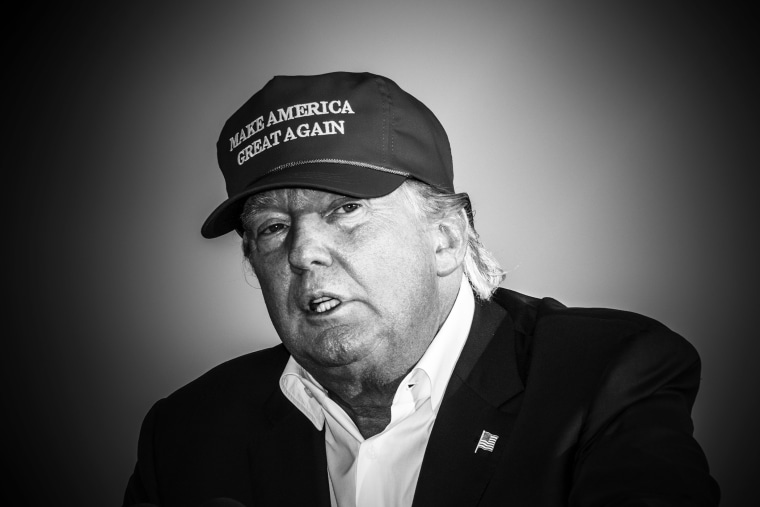Following one of Donald Trump's toughest weeks on the campaign trail to date, Republican National Committee chair Reince Priebus responded to a question about whether Trump is the GOP's strongest candidate by saying, "I don't know."
Appearing on NBC's "Meet the Press," Priebus hedged when asked if he was confident Trump could win a general election. "Sure, I think all of our candidates can win a general election."
But pressed on if Trump was the strongest general election candidate, the GOP chairman replied, "I don't know. Listen, I don't worry about who is the strongest candidate. Obviously, we have our own conversations here. But the fact is we're here prepared to support whoever the eventual nominee is."
As the primary process moves forward, an open GOP convention in Cleveland seems more likely. This has turned the convention's Rules Committee proceedings, which are usually an afterthought, to a must-watch affair. The rules committee sets the rules and procedures for the Republican National Convention and how the delegate voting works before the actual convention begins.
The 2012 Rules Committee instated a rule that if a candidate didn't win a majority of delegates in eight states, he or she could not be nominated at the convention. When asked if he thought a similar rule could come into play in 2016 Priebus replied, "Well, I'm of course guessing here. I don't have any power to change any rules…but I think it's probably unlikely that you see major changes."
However, he admitted "it doesn't make any sense" for the 2012 rules of Mitt Romney's delegates to apply to a 2016 convention made up "largely of Trump and Cruz delegates."
Questions are also starting to be raised about what an open Republican convention would look like for the vice presidential candidates.
While the top-of-the-ticket candidates continue to compete in the upcoming primary electiongs and wrangle delegates to get to the magic 1,237 number needed to clinch the nomination, the campaigns could find themselves behind in the VP vetting process. But to the question of whether the RNC was ready to help out with that process, Priebus responded, "not particularly."
"I mean, we certainly are equipped with our research team to do it. But that's another interesting question. Because the delegates choose the vice president as well. And that's a subject no one's really talking about, is that that's another vote on the floor that the delegates choose," he explained.
Historically, there is precedent for the delegates bending to the will of the eventual nominee when it comes to the bottom of the ticket.
During the open Republican convention in 1968, Richard Nixon won the nomination for president on the first ballot, but there was intense jockeying underway for who would serve as his running mate.
According to the New York Times, convention delegates pushed for Ronald Reagan, despite a telegram he sent to each state chairman saying he would not "under any circumstances" accept the VP nomination.
No fewer than seven names were in discussion as Nixon's running mate, but Gov. Spiro Agnew, R-Md., was ultimately recommended by Nixon and accepted unanimously for the Vice Presidential nomination.
This story first appeared on NBCNews.com.
